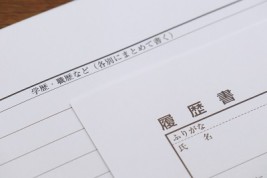Why Switching to Mobile App Development is Good For You
The coronavirus has changed life as we know it. Online education, banking, shopping, and work have become the new normal. People rely on social media apps now more than ever for news and entertainment, and hang out with friends and family via online conferencing through their mobile devices.Mobile applications have become part of everyone’s lives to the point where people download new ones every day. Google’s Play Store already has 2.56 million apps, while Apple’s App Store has 1.8 million apps available for download in the Q1 of 2020 alone. The numbers are projected to increase as people are spending more time at home.The Rise of Mobile Apps During COVID-19 PandemicThe mobile app development industry is evolving, and a wide range of factors affects the technological advancements in mobile apps such as consumer and client demands. Recently, app development is focused on how to connect people to all the information they need from their handheld devices.Playing games has also become a popular pastime among mobile users. In Q2 of 2020, over 12 billion games were downloaded from Google Play and 2.8 billion from Apple’s App Store.The pandemic opened career growth opportunities for mobile app developers as the demand for apps in healthcare, education, entertainment, and remote-work increased. Healthcare organizations and startups are collaborating with app developers to help people with health consultations. Educational institutions are revamping their curriculums so students can continue learning via digital channels and platforms.Why Switch to Mobile App Development?The success of a business can depend on how they can market their products and services to their customers. Mobile apps are powerful tools to multi-channel and maintain loyal customers, making mobile app developers important in the digital world.Aside from businesses, the gaming industry needs multi-skilled and creative talents. Mobile app developers maintain and develop updates to ensure optimal user experience and prevent them from tapping the uninstall button.As the need for mobile apps arises, so does the need for multi-skilled mobile app developers. Is a career in mobile app development good? Yes! A mobile app developer’s salary in Japan can go as high as 5 to 6 million yen annually. Aside from job security, competitive pay, and opportunities to upskill, app developers play a vital role in modernizing the world.Life of a Mobile App Developer in JapanBeing involved in the development of games and apps people use is the most rewarding and exciting experience for a mobile app developer in Japan. The country is also a hub for tech-savvy individuals who are always looking for the best apps to make their lives easier. However, there is more in the process of developing mobile applications.1. Planning and requirementsJust like any development team, mobile developers also search for the tools and create designs needed for the project, and according to the client’s requests. They plan the necessities for the project such as functions, budget, and delivery date.2. TestsThe team will implement the plans and designs for the app in this stage. Mobile app development requires a series of tests to see if the app works correctly in all versions of iOS and Android operating systems. When bugs are found, developers have to make tons of adjustments in the programming until the app is ready for public release.3. MaintenanceThe job of a mobile app developer doesn’t end when the app gets released to the consumers. Operating systems and hardware constantly change, so developers need to maintain these apps to make sure that they function effectively after every OS update and on newer smartphone models. They check reviews and collect suggestions from users and clients to implement updates in mobile apps.Programming Languages and ToolsMobile app companies require different programming languages depending on the operating system and projects they market. Here are some of the popular programming languages and tools used for app development in Japan.1. JavaScriptThis programming language is not used primarily for app development. Instead, it is used to develop browsers and web pages. However, JavaScript is essential for building mobile apps when combined with CSS, HTML, and AJAX. App developers specializing in android application development must know how to use JavaScript.It’s one of the most convenient languages because developers only have to code the app once. This programming language can also be used in iOS and Windows applications.2. C#This programming language is popular among applications in the banking industry and manufacturing. Developers also recommend C# to develop graphics & designs for game applications. It is supported by Unity3D, a cross-platform game engine, making it one of the best languages for building gaming applications.3. KotlinWhen it comes to the structure of the language, Kotlin is similar to Java. This new programming language comes with advanced features and can support all Integrated development environments (IDEs), such as Android Studio and SDK toolkit. Most android app developers in Japan also recommend it. Since it’s a new code, learning the language may be difficult due to the limited sources.4. Objective-CFor iOS apps, objective-C is preferred by mobile app developers since it is the core programming language used by Apple for iOS and OS X development. Even with the release of Swift, objective-C maintains its popularity among developers because most iOS app frameworks rely on the programming language even today.5. SwiftIt is the newest programming language and is only available for iOS development and on Linux. Swift is currently the primary language used in Apple’s APIs, Cocoa and Cocoa Touch.6. Alpha AnywhereIt is an excellent development and deployment tool for creating cross-platform mobile and web apps for business. It offers enterprise-grade mobile data security and comprehensive back-end date access.7. UnityThis cross-platform tool can be deployed on multiple platforms. App developers can edit images and organize animations from its built-in editor and animator window. It even has a physics engine and built-in camera, making in-game navigation simpler.ConclusionThe job of an app developer will never disappear. The demand for new applications will grow as new operating systems and phone models are released frequently. Since working from home and mobile transactions has become the new normal, there is already an increase for app development and maintenance.Despite the job security, app developers should continue to learn new languages since their market value changes rapidly and adapt to the latest technologies and coding methods to stay competitive.Sources:https://www.switchup.org/blog/the-benefits-of-learning-mobile-developmenthttps://www.joshmorony.com/6-reasons-you-should-switch-from-web-to-mobile-development/https://homebusinessmag.com/businesses/app-development/6-reasons-business-needs-mobile-app-succeed-2020/https://buildfire.com/mobile-app-development-trends/https://www.zymr.com/how-the-importance-of-mobile-apps-has-outshined-amid-the-fog-of-covid-19-pandemic/https://www.statista.com/statistics/276623/number-of-apps-available-in-leading-app-stores/https://www.statista.com/statistics/661553/global-app-stores-mobile-game-downloadshttps://medium.com/googleplaydev/find-success-for-apps-and-games-in-japan-af9e8fd1c139https://www.fca.ac.jp/work_books/9798/https://style.potepan.com/articles/136.html















